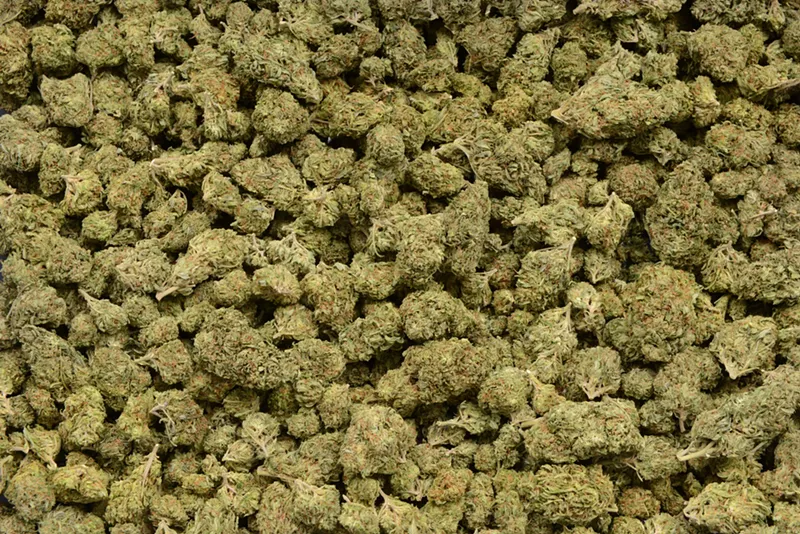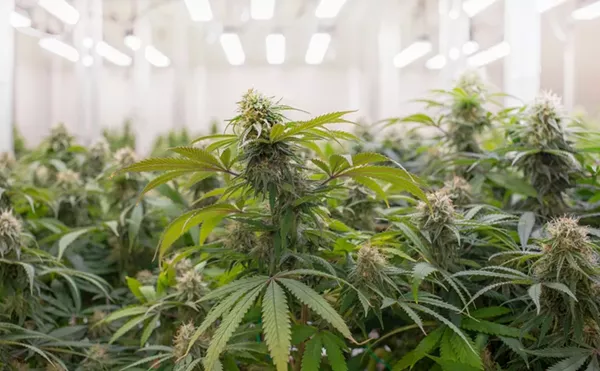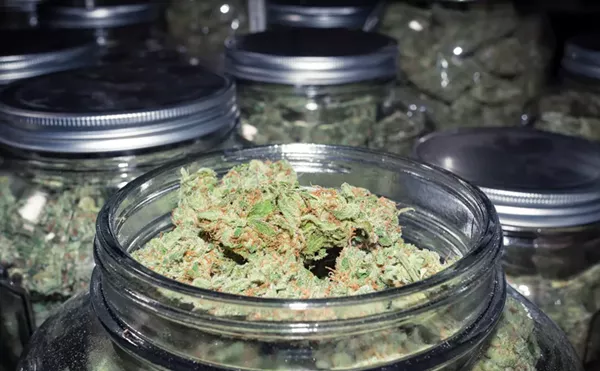
Audio By Carbonatix
[
{
"name": "GPT - Leaderboard - Inline - Content",
"component": "35519556",
"insertPoint": "5th",
"startingPoint": "3",
"requiredCountToDisplay": "3",
"maxInsertions": 100,
"adList": [
{
"adPreset": "LeaderboardInline"
}
]
}
]

Shutterstock.com
Many local dispensaries are now stuck with large amounts of marijuana that must be retested or destroyed.
A Michigan judge rejected state regulators’ request to reinstate part of a massive recall on potentially contaminated marijuana.
The Michigan Marijuana Regulatory Agency (MRA) asked a judge on Dec. 3 to reconsider his decision to halt part of the recall of marijuana that was tested by Viridis Laboratories and Viridis North, saying that some of the cannabis is likely contaminated.
Court of Claims Judge Christopher Murray declined the request on Monday, saying the MRA “failed to establish that a palpable error occurred that misled the court and parties,” MLive reports.
“The evidence upon which the motion is based does not relate to any testing justification existing before the recall decision,” the judge said.
Murray lifted the recall for cannabis tested at Viridis North, saying there wasn’t enough evidence to justify the recall.
On Nov. 17, the MRA recalled thousands of pounds of cannabis that were tested at the labs and were being sold in more than 400 dispensaries because of inaccurate and unreliable testing results. It was the state’s largest recall.
During subsequent testing, the state discovered that 26% of Viridis North’s retested cannabis failed microbial testing, the agency told the court.
"The MRA should not be compelled to turn a blind eye to the obvious hazard of returning products to the market that have — in fact — failed a microbial testing panel," the motion, submitted by Risa Hunt-Scully, an assistant attorney general representing the MRA, said.
Viridis Laboratories CEO Greg Michaud disputed the findings, saying that the retested cannabis is not a reflection of the original test results because the products could have been contaminated during transportation when it was processed or packaged, or after being handled by dispensary employees and customers.
Stay connected with Detroit Metro Times. Subscribe to our newsletters, and follow us on Google News, Apple News, Twitter, Facebook, Instagram, or Reddit.






